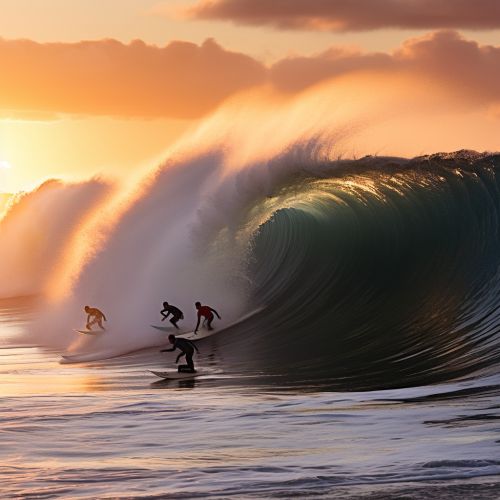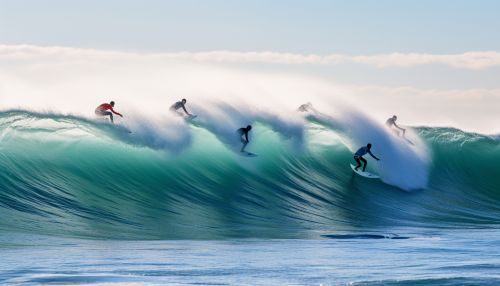History of Surfing Competitions
Origins of Surfing Competitions
Surfing, as a sport, has its roots in the ancient Polynesian cultures where it was considered not only a recreational activity but also a ceremonial ritual. The first recorded instances of surfing competitions, however, date back to the early 20th century in Hawaii and California. These early competitions were informal gatherings of local surfers, often organized by local surf clubs.


Evolution of Surfing Competitions
The evolution of surfing competitions is closely tied to the development of the surfboard. The introduction of lighter, more maneuverable boards in the 1950s and 1960s led to a significant increase in the popularity of surfing and, consequently, surfing competitions. The 1960s saw the establishment of the first professional surfing competitions, with the inaugural World Surfing Championships held in Sydney, Australia in 1964.
Modern Surfing Competitions
Modern surfing competitions are governed by the World Surf League (WSL), which was established in 1976. The WSL organizes the annual Championship Tour, which is the highest level of professional surfing competition. The tour includes events at various locations around the world, including Australia, South Africa, Brazil, and Hawaii.
Competition Format
Surfing competitions typically involve a series of heats, with surfers competing against each other to catch the best waves and perform the most impressive maneuvers. The surfers are judged on a variety of criteria, including the size of the wave, the length of the ride, and the difficulty and execution of maneuvers. The top two surfers from each heat advance to the next round, with the process continuing until a winner is determined.
Judging Criteria
The judging criteria in surfing competitions have evolved over time, with an increasing emphasis on aerial maneuvers and progressive surfing. The International Surfing Association (ISA) and the WSL have established detailed criteria for judging, which include factors such as commitment and degree of difficulty, innovative and progressive maneuvers, combination of major maneuvers, variety of maneuvers, and speed, power, and flow.
Impact of Surfing Competitions
Surfing competitions have played a significant role in the growth and development of the sport. They have helped to popularize surfing, attract sponsorship and media attention, and drive advancements in surfboard design and surfing technique. Competitions have also provided a platform for surfers to showcase their skills and have contributed to the professionalization of the sport.


Future of Surfing Competitions
The future of surfing competitions looks promising, with the sport continuing to grow in popularity and reach. Surfing made its debut at the 2020 Summer Olympics in Tokyo, marking a significant milestone in the sport's history. With advancements in wave pool technology, there is also the potential for more consistent and accessible competition venues in the future.
